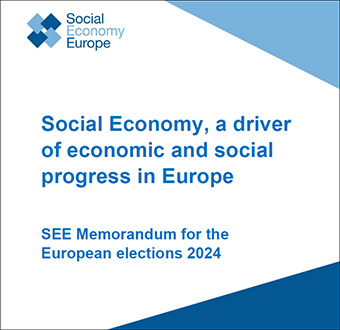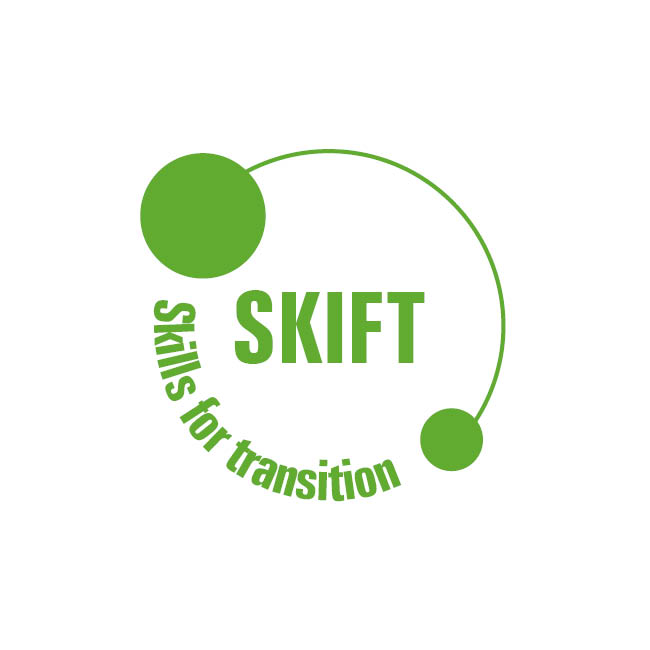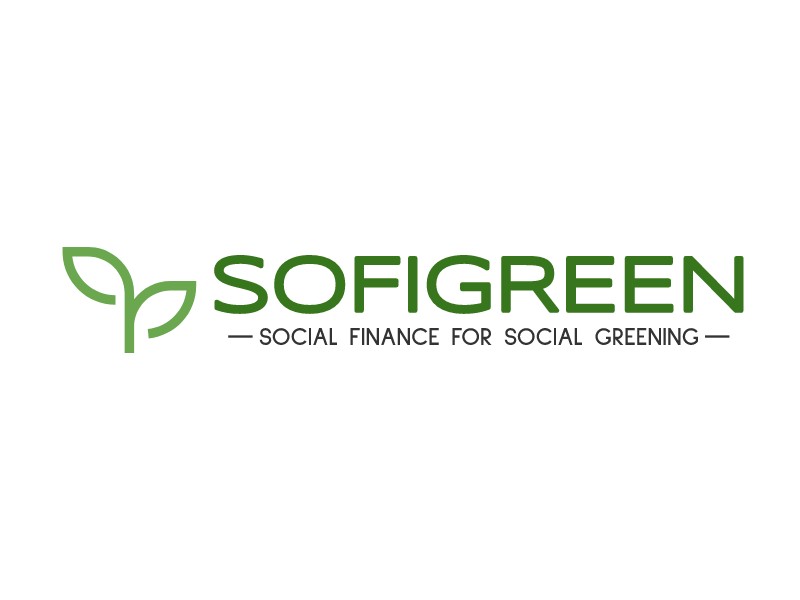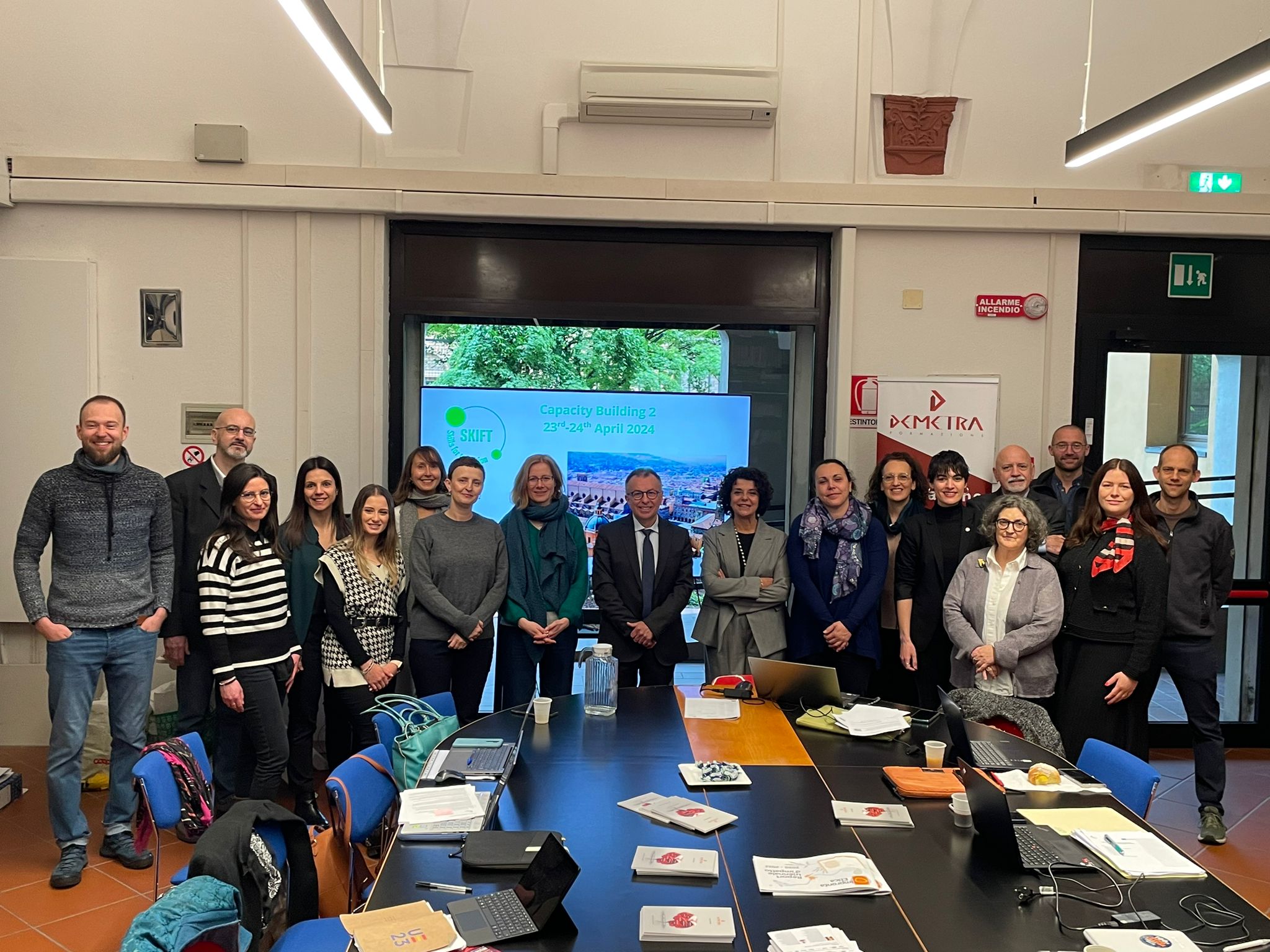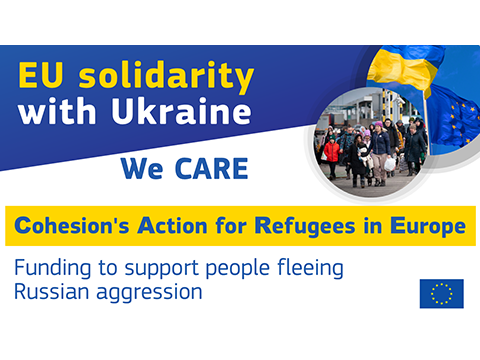
On 8 March 2022 the European Commission adopted a proposal for Cohesion’s Action for Refugees in Europe (CARE) allowing Member States and regions to provide emergency support to people fleeing from Russia’s invasion of Ukraine.
CARE is introducing the necessary flexibility in the 2014-2020 Cohesion policy rules to allow a swift reallocation of available funding to such emergency support. On top, the 2022 envelope of €10 billion of the Recovery Assistance for Cohesion and the Territories of Europe (‘REACT-EU’) funds can also be used to address these new demands within the overall aim of post-pandemic recovery.
Examples of emergency support
CARE will help Member States to provide emergency support covering the basic needs of people fleeing the Russian invasion of Ukraine. These needs include access to services such as temporary accommodation, food and water supplies or medical care. CARE may also enhance the administrative capacity of Member States to cater for the needs of refugees by supporting e.g. additional infrastructure equipment or staff necessary to cater for the needs of refugees. Moreover, Member States may use this funding to develop tailor-made solutions for the long-term integration of people with a migrant background through investments in housing, education, employment, health, social inclusion and care, or other social services. Cohesion policy support will complement the support from the Asylum, Migration and Integration Fund (AMIF) and other funding sources. The Commission is also proposing today to prolong the implementation period for the money available to Member States under the 2014-2020 Home Affairs funds, which would release around €420 million in additional support.
An exceptional instrument for exceptional circumstances
CARE introduces four main changes to cohesion policy rules to maximise the speed and ease with which Member States can help people fleeing Ukraine, while continuing to support regions’ recovery:
- To ease national budgetary pressures, notably due to the extended impact of the COVID-19 pandemic, the possibility of 100% EU co-financing for 2014-2020 Cohesion policy funding will be extended for the accounting year 2021-2022;
- Member States and regions will have the possibility to use resources from either the European Fund for Regional Development (ERDF) or the European Social Fund (ESF) for any type of measures to support people fleeing Ukraine. Thanks to this flexibility either fund will also be able to support projects even if these would normally be funded by the other one;
- Member State spending on all actions helping people fleeing Ukraine will be eligible for EU support retroactively as of the start date of the Russian invasion (24 February 2022);
- The reporting and the programme notification adoption will be simplified.
Next steps
The proposed amendments of the Common Provisions Regulation and the Fund for European Aid to the Most Deprived Regulation require adoption by the European Parliament and the Council.
For more information:
https://ec.europa.eu/regional_policy/en/newsroom/news/2022/03/03-08-2022-ukraine-cohesion-funding-to-support-people-fleeing-russia-s-invasion-of-ukraine
Read More
European Elections: Help us mobilising (future) MEPs to keep social economy on the EU policy agenda
The European elections are approaching. Their outcome will decide on the direction the EU will…
REVES Annual Meeting 2024: Focus on inter-cooperation between different (social economy) actors and municipalities
REVES Annual Meeting 2024: Focus on inter-cooperation between different (social economy) actors and municipalities REVES…
OPEN CALL: POSSIBILITY FOR MICRO&SMALL SE ENTERPRISES TO RECEIVE FREE ADVISE AND COACHING ON GREEN TRANSITION-RELATED TOPICS
The SKI.F.T call for proposals is now open! Micro and small social economy enterprises…
GREENING OPPORTUNITY FOR SEEs
the SOFIGREEN call for proposal for SEEs operating in France, Italy and Spain is now…
 Docs
Docs  Support
Support 

